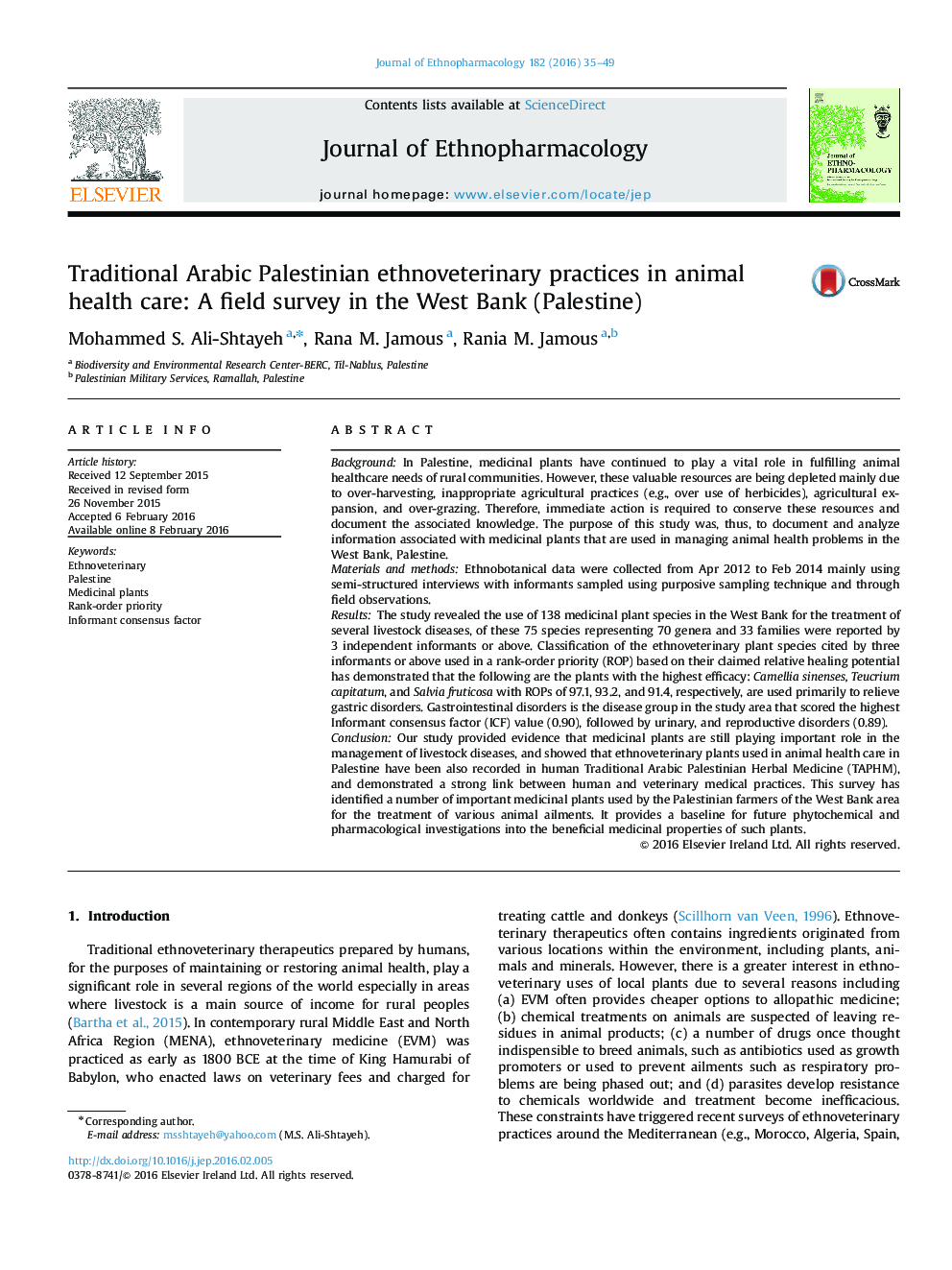| کد مقاله | کد نشریه | سال انتشار | مقاله انگلیسی | نسخه تمام متن |
|---|---|---|---|---|
| 5834621 | 1560380 | 2016 | 15 صفحه PDF | دانلود رایگان |
BackgroundIn Palestine, medicinal plants have continued to play a vital role in fulfilling animal healthcare needs of rural communities. However, these valuable resources are being depleted mainly due to over-harvesting, inappropriate agricultural practices (e.g., over use of herbicides), agricultural expansion, and over-grazing. Therefore, immediate action is required to conserve these resources and document the associated knowledge. The purpose of this study was, thus, to document and analyze information associated with medicinal plants that are used in managing animal health problems in the West Bank, Palestine.Materials and methodsEthnobotanical data were collected from Apr 2012 to Feb 2014 mainly using semi-structured interviews with informants sampled using purposive sampling technique and through field observations.ResultsThe study revealed the use of 138 medicinal plant species in the West Bank for the treatment of several livestock diseases, of these 75 species representing 70 genera and 33 families were reported by 3 independent informants or above. Classification of the ethnoveterinary plant species cited by three informants or above used in a rank-order priority (ROP) based on their claimed relative healing potential has demonstrated that the following are the plants with the highest efficacy: Camellia sinenses, Teucrium capitatum, and Salvia fruticosa with ROPs of 97.1, 93.2, and 91.4, respectively, are used primarily to relieve gastric disorders. Gastrointestinal disorders is the disease group in the study area that scored the highest Informant consensus factor (ICF) value (0.90), followed by urinary, and reproductive disorders (0.89).ConclusionOur study provided evidence that medicinal plants are still playing important role in the management of livestock diseases, and showed that ethnoveterinary plants used in animal health care in Palestine have been also recorded in human Traditional Arabic Palestinian Herbal Medicine (TAPHM), and demonstrated a strong link between human and veterinary medical practices. This survey has identified a number of important medicinal plants used by the Palestinian farmers of the West Bank area for the treatment of various animal ailments. It provides a baseline for future phytochemical and pharmacological investigations into the beneficial medicinal properties of such plants.
226
Journal: Journal of Ethnopharmacology - Volume 182, 22 April 2016, Pages 35-49
